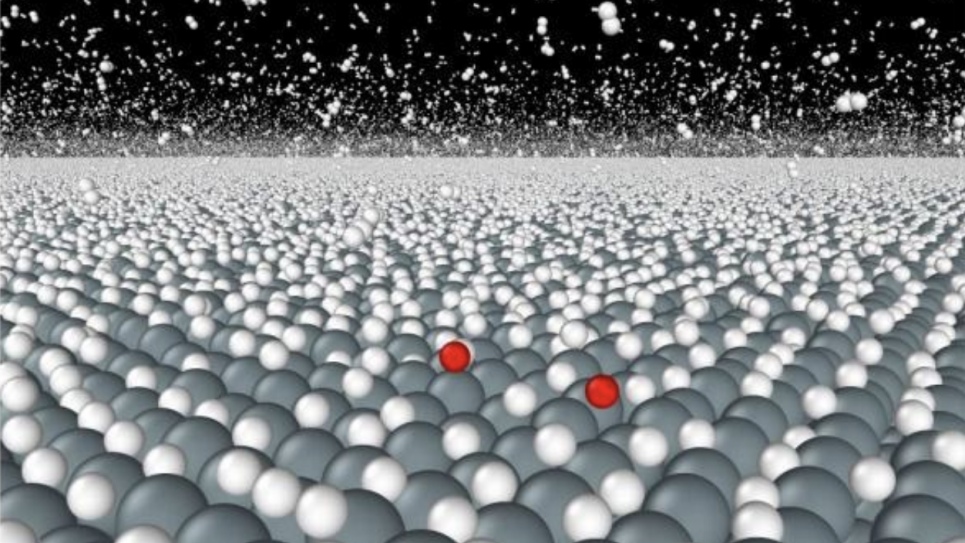
Extreme-scale reactive molecular dynamics simulation.
This team will deploy new state-of-the-art machine learning (ML) methods to construct reliable and accurate force fields, trained on accurate quantum electronic structure (DFT) calculations and perform record-scale and -speed MD simulations of battery and catalytic interfaces.
Heterogeneous catalysis is central to the production of hydrogen and more generally, catalytic production of chemicals consumes 30% of global energy used in manufacturing. Li-ion battery systems are becoming primary systems for storing energy in stationary and transportation applications. Optimizing the performance and durability, while reducing overall cost, is therefore key to advancing these technologies for sustainable energy infrastructure. Microscopic chemical and mechanical processes that critically determine performance and degradation of batteries and catalysts occur at interfaces and are poorly understood due to the inability of experimental characterization to probe surface and interface phenomena at atomistic resolution. Molecular dynamics (MD) simulations can enable faster and more detailed mechanistic insights, but have been until recently limited by the accuracy-cost tradeoff — ab initio methods are accurate but expensive, while empirical classical force-fields are fast but inaccurate. To break through this tradeoff, the team will deploy the team’s new state-of-the-art machine learning (ML) methods to construct reliable and accurate force fields, trained on accurate quantum electronic structure (DFT) calculations and perform record-scale and -speed MD simulations of battery and catalytic interfaces. The team proposes to generate previously inaccessible atomistic understanding of interfacial reactions on two fronts: (1) solid-state electrolytes reacting with electrodes, and (2) reactive atmospheres over heterogeneous catalysts, both at experimentally relevant time- and lengthscales. These efforts will yield critical information regarding processes like battery degradation and transport at interfaces, and active-site selectively and stability for hydrogen production.